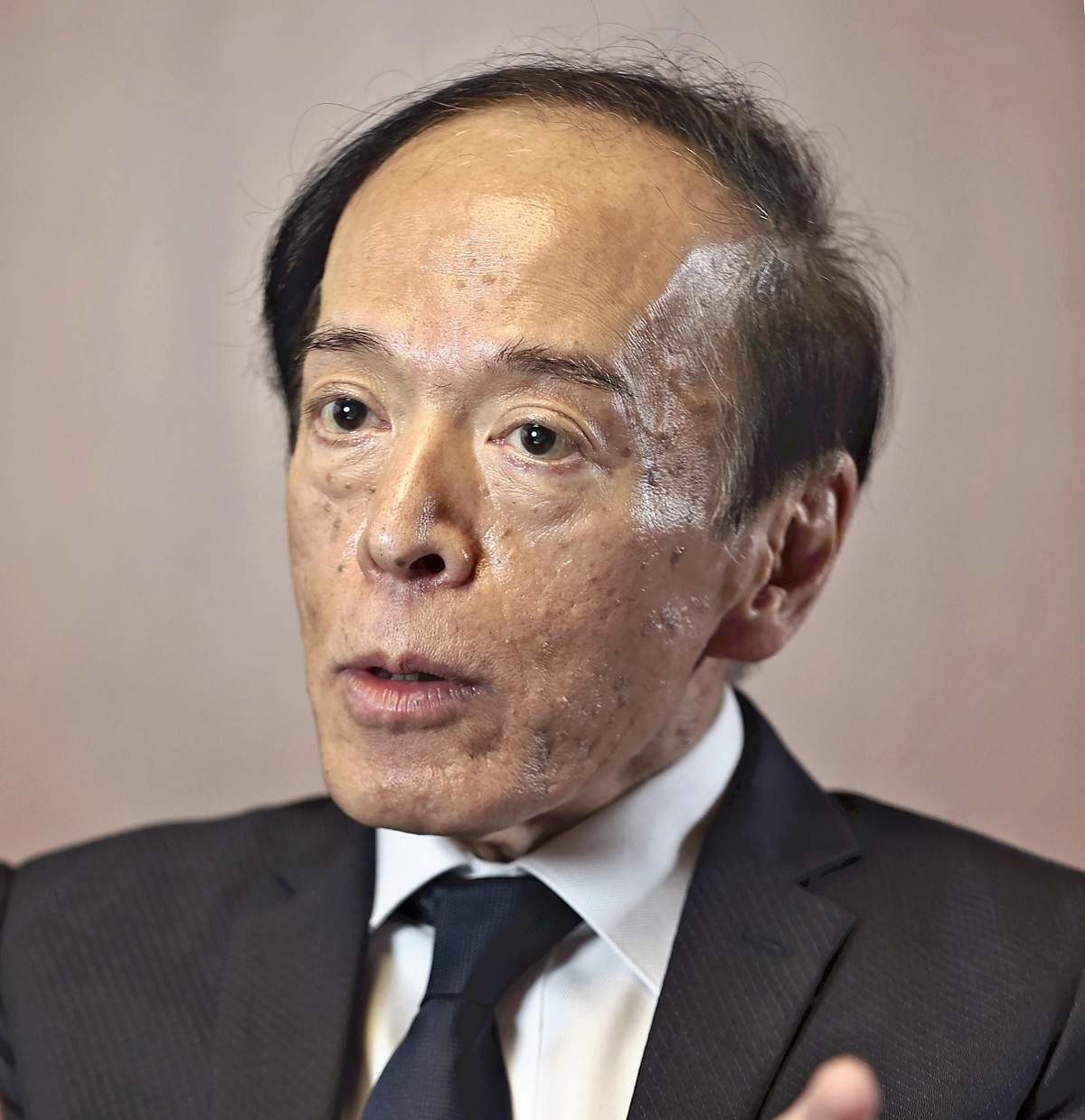BOJ Seeks Quiet Exit from Easing as Business Improves: Gov. Ueda Aims to Avoid Shocks to Market

Bank of Japan Gov. Kazuo Ueda
20:00 JST, September 9, 2023
The Bank of Japan has entered a phase of reducing monetary easing. In an interview with The Yomiuri Shimbun, BOJ Gov. Kazuo Ueda described the monetary policy modification decided in July as “a mechanism to change the balance between the effects and side effects” of monetary easing measures. The focus will now be on “a quiet exit,” which the BOJ is seeking to avoid significant impact on the market.
Improved business results
Ueda said, “It is not impossible that we will have enough by the end of the year to anticipate [wage hikes next spring].” He cited the end of the year as a possible time to assess the trend of wage increases, a key factor in setting price increases.
Ueda also said that “there are some things we cannot see,” including overseas economies, and expressed his cautious approach.
Corporate performance improved in a wide range of industries, including automobiles and distribution, due to the depreciation of the yen and the penetration of price increases in the April-June quarter of 2023. The average negotiated amount of summer bonuses at major companies recovered to over ¥900,000 for the first time in three years.
Although rising interest rates are a burden on households and corporate finances, if the economy improves, the economy will have the strength to absorb the increased burden. The BOJ’s aim of achieving a 2% inflation rate with accompanying wage increases would become a reality.
Ueda explained the July revision of the upper limit of long-term interest rates as a kind of risk management. “It was necessary to create room for a response so that things would not go crazy when prices swing upward,” he said, revealing that the BOJ had made the decision based on reflections that it had underestimated the price outlook until now. The central bank’s quarterly announced inflation rate forecast for fiscal 2023 was 1.6% as of October last year, but it was revised upward in April and July, and the outlook as of July was 2.5%.
The U.S. Federal Reserve Board continued to ease monetary policy around the summer of 2021, treating high prices as a temporary phenomenon caused by the COVID-19 pandemic.
The Fed is now struggling to make inflation subside.
Similarly, should individuals and firms in Japan come to anticipate a sustained rise in prices, growth expectations would spur consumption and investment, which could lead to higher interest rates.
BOJ focuses on data
“The degree of data dependency has increased.” Ueda said, indicating that the bank’s decision-making is now based more on responding to current economic conditions and less on efforts to convince the market that easing would continue.
The Bank of Japan has so far focused on convincing the market that strong monetary easing will continue for the long term. From now on, however, the central bank will shift its focus to policy management based on economic and price conditions.
The monetary easing measures that the bank has continued since 2013 are unprecedentedly large in the world.
Japan’s monetary base, or the total amount of currency in circulation, has expanded by about five times, and the Bank of Japan’s total assets have also increased by about fivefold in that time.
The central bank holds about half of the JGBs in circulation in order to keep yields down.
The Nikkei 225 stock average reached a post-bubble high of more than 33,700 this summer. Real estate and other prices are also rising.
“There is currently no imbalance like that of a bubble economy,” Ueda said. Meanwhile, he also said, “Behind-the-curve [a situation in which monetary policy lags behind] is not something we are actively allowing” while continuing monetary easing.
It is not easy to “exit” from the easing measures in an economic environment that was itself created by the exceptional monetary policy.
Top Articles in Business
-

Prudential Life Insurance Plans to Fully Compensate for Damages Caused by Fraudulent Actions Without Waiting for Third-Party Committee Review
-

Narita Airport, Startup in Japan Demonstrate Machine to Compress Clothes for Tourists to Prevent People from Abandoning Suitcases
-

Japan, U.S. Name 3 Inaugural Investment Projects; Reached Agreement After Considerable Difficulty
-

Toyota Motor Group Firm to Sell Clean Energy Greenhouses for Strawberries
-

SoftBank Launches AI Service for Call Centers That Converts Harsh Customer Voices into Softer Voices
JN ACCESS RANKING
-

Producer Behind Pop Group XG Arrested for Cocaine Possession
-

Japan PM Takaichi’s Cabinet Resigns en Masse
-

Man Infected with Measles Reportedly Dined at Restaurant in Tokyo Station
-

Israeli Ambassador to Japan Speaks about Japan’s Role in the Reconstruction of Gaza
-

Videos Plagiarized, Reposted with False Subtitles Claiming ‘Ryukyu Belongs to China’; Anti-China False Information Also Posted in Japan




















